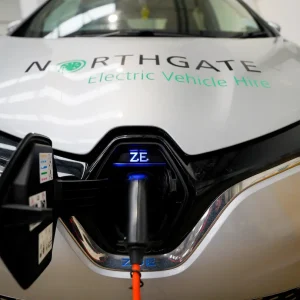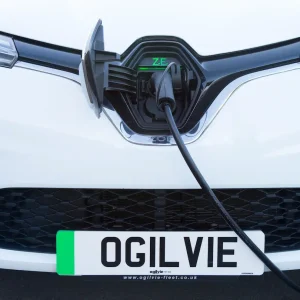Digital sales are accounting for an increasing slice of the used car market. Jack Carfrae explores how much further the market can develop and considers trends in online remarketing including what type of vehicles sell on the web
Gone are the days when defleeting vehicles through auction meant your audience was limited to local buyers and traders. Online sales have experienced explosive growth in a relatively short period of time across the used car market, to the point where some are predicting that they could overtake physical used car sales in terms of volumes.
BCA’s Tony Gannon claims that online used car sales have brought plenty to the table and that they’re a separate entity to physical sales: “It is not about either/or but the right channel for the right vehicle at the right time. Online channels mean vehicles can be on sale 24/7, 365 days a year and that is a benefit for sellers and buyers alike. By reaching more buyers more of the time, online channels bring another dimension to the selling process.
“Physical auction, meanwhile, is unmatched when it comes to handling large volumes of vehicles quickly and efficiently. It is increasingly commonplace for vehicles consigned for sale at BCA to be offered in a ‘bid now’ or ‘buy now’ online sale while they are waiting to be sold in a physical auction.”
The consensus across the industry is similar, with the majority of those involved with the remarketing process of the opinion that the wider audience garnered by online sales, and the lower overheads for trade buyers who no longer have to travel the length and breadth of the country has made the channel tremendously successful.
James Hopkins, head of remarketing at Leaseplan, claims that web sales have bridged the gap between domestic business sellers and overseas buyers, which is particularly useful for certain types of defleeted vehicles: “Specific models, such as prestige petrol vehicles and SUVs, which traditionally struggle to find buyers in the UK are far more popular amongst foreign buyers. This diversity is a key benefit of online remarketing and offers a more varied market with differing demands, which can help immensely if a specific class of vehicle is coming to market.”
In addition to overseas sales, Hopkins states that reeling in smaller buyers via digital sales is also beneficial to businesses trying to get best value for defleeted cars, as some people bidding may not have made a pilgrimage to a physical auction: “Online also offers a key benefit for smaller UK buyers who may not be local to where the vehicle is being auctioned. While they may be happy to bid for a vehicle online, they may not be prepared to travel and expend a valuable day to physically assess and purchase the vehicle.
“The vendor still benefits from this remote interaction as there tends to be a correlation between audience size and the strength of the bid received. Therefore all of these smaller buyers add to the overall value proposition.”
Despite their enormous growth, some members of the industry are predicting that the technology side of online sales doesn’t have much further to go. Small, evolutionary changes are being predicted rather than radical software overhauls, as David Wallace, sales and business development director at Epyx says: “We are at a stage now where there are unlikely to be any massive innovative leaps in online remarketing because the products now available are relatively mature. Instead, we are seeing developments in two areas – firstly, further refining the capabilities of existing products and, secondly, making them run on a wider range of platforms such as a variety of smartphones and tablets.”
In a similar vein, Gannon admits that BCA is unlikely to experience the same ferocious growth from digital sales that it has since its inception: “In the 12 years since BCA introduced the Live Online concept to the UK market, the annual volume sold to online bidders has gone from a few dozen manufacturer cars to over 120,000 units. We may be unlikely
to see that sort of growth explosion again, but steady online volume expansion is planned for over the
next five years.”
While auctioneer giants such as BCA and Manheim have embraced digital sales with their Live Online and Simulcast products respectively, not every auction house has caught up and there are still a number of firms that have yet to take the plunge or are only operating online in a nominal capacity, as Hopkins explains: “The proportion of sales very much depends on the individual auction house. Leaseplan sees online sales of as much as 50% with some auction houses and below 10% with others.”
That’s not to say that web sales are the only way forward for the auction industry, as plenty of firms continue to produce results from physical selling. Equally, elements of the online sales process can be applied to make the best of physical sales, so it is often seen as a supplementary measure to the traditional sales process rather than a gradual replacement for it.
Wallace explains how such a tactic can be performed by fleet operators: “The expertise of fleet disposal departments lies in knowing which works best for which vehicles over time. [Epyx’s] technology is agnostic in this respect – it does not guide you towards any particular channel. Instead, what it does is allow the person making the disposal decision to make the best use of their expertise – if they know that a particular variant of Ford Mondeo will perform best at a physical auction site in the North West, [the system] makes it a matter of a few clicks of a mouse to ensure it is prepared and transported there.”
But for businesses Hopkins believes that common fleet models are actually better suited to physical sales: “Online selling is most effective for unusual or prestige vehicles. The more common vehicles, such as Mondeos, tend to be more popular amongst offline buyers. The same can be said for the majority of LCVs. However a specialist LCV, such as a mini bus with wheelchair access, will often buck this trend.”
Despite its ability to supplement traditional used car sales, there is no doubt that digital selling will continue to absorb a larger portion of the second-hand market, especially with the big players in remarketing, as Hopkins surmises: “The preference for online sales is likely to gradually increase overall in the medium term, but I would not be surprised to see a swing towards a slight majority of online sales within the next five years.”





